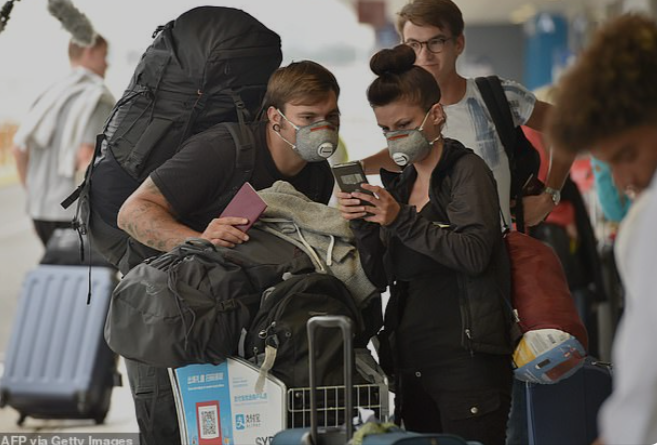Table of Contents
Mpox Travel Safety Guide: As international travel rebounds, it’s crucial for travelers to stay informed about potential health risks, especially with the rise of global health concerns like Mpox (formerly known as Monkeypox). This viral disease, though less prevalent than others, poses significant risks, particularly in regions where outbreaks have been reported. Here’s a comprehensive guide to ensuring your travel remains safe and enjoyable while minimizing the risk of Mpox exposure.
Understanding Mpox Travel Safety Guide
Mpox is a zoonotic disease, meaning it can be transmitted from animals to humans. The disease can also spread from person to person through direct contact with an infected individual, contaminated objects, or respiratory droplets. Symptoms typically include fever, headache, muscle aches, and a distinctive rash that progresses from flat lesions to raised bumps and eventually to blisters. While Mpox is generally not fatal, it can cause severe discomfort and lead to complications in individuals with weakened immune systems.
Pre-Travel Preparations for Mpox Travel Safety Guide
- Research Your Destination: Before traveling, research the current Mpox situation in your destination. Check travel advisories from health organizations like the World Health Organization (WHO) and the Centers for Disease Control and Prevention (CDC) to understand the risk levels and any travel restrictions or health recommendations.
- Vaccination Considerations: While there is no specific vaccine for Mpox, the smallpox vaccine has been found to offer some protection due to the similarity between the two viruses. Consult your healthcare provider to see if vaccination is recommended based on your destination and health status.
- Travel Insurance: Ensure your travel insurance covers medical care abroad, including treatment for Mpox and potential evacuation if necessary. Having comprehensive coverage provides peace of mind should any health issues arise during your trip and ensure Mpox Travel Safety Guide.
During Travel (Mpox Travel Safety Guide)
- Practice Good Hygiene: Regular handwashing with soap and water is crucial, especially after touching animals, handling food, or being in crowded areas. Carry hand sanitizer containing at least 60% alcohol for situations where soap and water aren’t available.
- Avoid Contact with Wild Animals: Mpox transmission can occur through direct contact with infected animals or consumption of undercooked meat. Refrain from interacting with wildlife, particularly in areas known for Mpox cases, and avoid consuming bushmeat.
- Maintain Social Distancing: In areas where Mpox cases have been reported, practice social distancing. Avoid close contact with individuals showing symptoms of the disease, such as rashes or lesions. Wearing masks in crowded or enclosed spaces can further reduce the risk of respiratory transmission.
- Monitor Your Health: Keep track of any symptoms you may develop during your travels. Early detection is key to preventing the spread of Mpox. If you notice any signs of illness, particularly fever and rash, seek medical attention immediately and inform healthcare providers of your travel history.
Post-Travel Measures (Mpox Travel Safety Guide)
- Self-Monitoring: After returning home, monitor your health for at least 21 days, which is the incubation period for Mpox. Be vigilant for symptoms like fever, chills, or skin rashes. Early detection and treatment can prevent complications and transmission to others.
- Seek Medical Advice: If you develop symptoms consistent with Mpox after returning from your trip, contact your healthcare provider immediately. Inform them of your travel history so they can take appropriate measures, including testing and isolation if necessary.
- Follow Quarantine Guidelines: Depending on the situation at your destination, you may be required to quarantine upon your return. Adhere to local health regulations and guidelines to ensure the safety of yourself and those around you.
Conclusion of Mpox Travel Safety Guide
Traveling in the era of global health concerns like Mpox requires vigilance and preparedness. By staying informed, practicing good hygiene, and taking precautionary measures before, during, and after your trip, you can minimize the risk of exposure and enjoy a safe travel experience. Always prioritize your health and the well-being of others as you explore new destinations.

